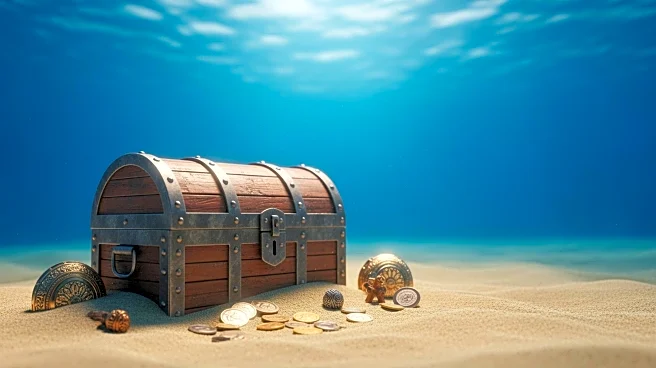What's Happening?
Colombia has successfully recovered gold and bronze coins, a porcelain cup, and a cannon from the San José, a Spanish galleon sunk over 300 years ago by the British Royal Navy. The shipwreck, often referred
to as the 'holy grail of shipwrecks,' was carrying significant amounts of gold, silver, and emeralds from Spanish colonies in Latin America to the Spanish king during the War of the Spanish Succession. The Colombian government claims to have discovered the wreck in 2015 with international scientific assistance, while a U.S.-based marine salvaging company, Sea Search-Armada (SSA), asserts it found the shipwreck in the early 1980s and is entitled to half of the estimated $10 billion value of the treasure. The Colombian Ministry of Culture has described the recovery as a historic event, emphasizing its importance for understanding Europe's economic, social, and political climate in the early 18th century.
Why It's Important?
The recovery of the San José's treasures is significant for both historical research and cultural heritage. The artifacts provide insights into the economic and political dynamics of the early 18th century, potentially offering new perspectives on European history. The legal dispute between Colombia and SSA highlights the complexities of underwater cultural heritage claims, with billions of dollars at stake. This case could set precedents for future international legal battles over shipwrecks and their treasures. Additionally, the event underscores Colombia's commitment to preserving its cultural heritage, which could enhance its reputation in the field of archaeology and conservation.
What's Next?
The recovered items will undergo a conservation process and be used for archaeological research, potentially leading to new discoveries about the San José and its historical context. The legal battle between Colombia and SSA continues in the Permanent Court of Arbitration, with significant financial implications depending on the outcome. The case may influence international maritime law and the handling of similar disputes in the future. Stakeholders, including historians, archaeologists, and legal experts, will be closely monitoring developments as the situation unfolds.










